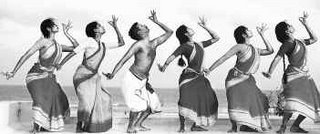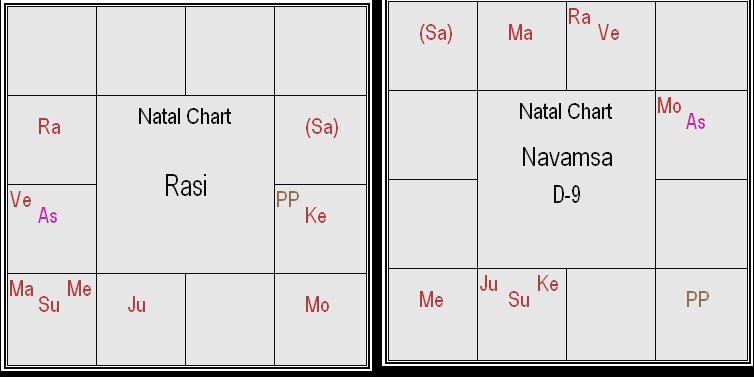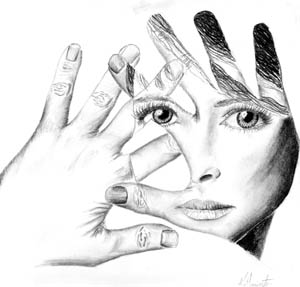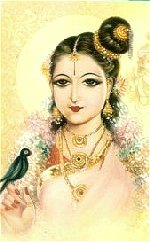I still recall the first time I heard a ghazal. It sprang out of an old National Panasonic music system and was carried in the voice of Ghulam Ali. My father had caught me in my moment of tiredness (from running around the house on a walking stick which, to me then, was the finest stallion ever) and asked me to sit on his lap and listen to this new cassette. I remember the black cover with something in blue under the plastic case chequered in clear and misty portions. I was too tired to protest and we sat together on our old sofa (we had two sofas which were conveniently named, old and new sofa). I learnt a lot on the old sofa including the important lesson of a protruding brad's ability to cut your skin! He chose the song "Chupke Chupke raat din" (
chupke- furtively, quietly,
raat-night,
din-day) and let it play softly until it filled the room. I wasn't sure whether it was the heaving of a tired torso or the melody of the song which made the room sway while it played mellifluously with words I never understood and a medley of instruments I couldn't discern. After a while, which is always eternity to a child of five, I jumped out of my father's lap and started riding my black stallion with a mane like the darkest of clouds and eyes like molten nuggets of gold, riding through palatine worlds of evil lords. My father simply shook his head and reclined against the sofa with his eyes half shut.
Another scene that is stuck in my head is a bunch of people sitting around the poet and listening to his ghazal recital. He would say a part of the last line and the rest would join him in completing the verse and then go "Waah, waah" (which is like saying "Wonderful" repeatedly or "Bravo"). I thought they were all cheating us and had read the poem earlier before assembling, a sneak peek; how else could they know what the poet had composed?
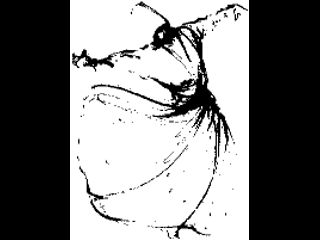
Things have changed immensely since then and ghazals have an appeal too personal to put in words. Often I wonder, whether I would have appreciated ghazals without understanding their construction. I suppose I still admire the stars on a clear night although I have done enough research into their composition and found explanation for the shimmering presence at an hour when one needs light the most!
In this discussion, we shall see what ghazals are and explore a few aspects of ghazal composition that might elicit a greater appreciation hereafter when a ghazal is encountered. Although this might seem like being too specific to Urdu, I would like to bring to notice that the pattern of a ghazal is also used in English, Marathi and Hindi poetry. Translations (sometimes literal and sometimes not) shall accompany the quoted verses.
A ghazal is a collection of shers following a, usually, strict code regarding the style and constraints on the first and following shers. A sher is a couplet. The meter, or beher, of each line in the sher is the same. There are supposedly nineteen different kinds of meters codified as
arkaan or syllables used to render the sense of a meter. This technique is used amongst musicians, esp. percussionists, who wish to describe the beat to another person. If we were describing the beat in Hotel California, it might be something like
dum-chuck-d-dum-d-dum-chuck or something similar. In order to standardize the mechanism of such communication, meters were specified using arkaan (which literally means pillars). Hence, what we have as a definition for a ghazal is a collection of couplets following a few rules of construction and a single chosen meter. We shall consider the constraints placed on these couplets now.
Let us consider a ghazal to facilitate this discussion and what better than a ghazal from the first album I had heard while sitting on my father's lap and to that memory, I dedicate this article. The translation is not of comparable literary value as the original ghazal, and serves the mere purpose of providing those, who find Urdu an alien tongue, a coarse outline of the poet's creation.
Yeh dil, yeh pagal dil mera, kyun bujh gayaa, aawaragi
Is dasht me ek shehar tha, wo kya hu-aa, aawaaragi
This heart, this foolish heart of mine; why did it die? Loneliness.
In this wilderness, a beautiful city thrived; what happened to it? Loneliness.
Kal shab mujhe, beshakl ki aawaz ne chaunka diya
Maine kaha "tu kaun hai", usne kahaa "aawaaragi"
Last night, a faceless voice caught me by surprise
I asked, "Who are you?" and it said "Loneliness"
Ye dard ki tanhaaiyaan, ye dasht ka veeraan safar
Hum log to ukhta gaye, apni sunaa aawaargi
(In) this pain of solitude and lonely travel through the desert
We soon got bored, So, tell us more about your(self) "loneliness"
Ek ajanabi jhaunke ne jab, puchha mere gam ka sabab
Sehara ki bhigi ret par, maine likhaa "aawaaragi"
A sudden unknown waft asked me about the cause of my sadness
On the wet sands of the desert, I wrote thus: "Loneliness"
Kal raat tanha chaand ko, dekha tha maine khwaab me
'Mohsin' mujhe, raas aayegi, shaayad sadaa aawaaragi
Last night, a lonely moon did I see in my dreams
Oh Mohsin! This suits me fine now and after, this loneliness
This ghazal is a composition by Mohsin Naqvi and hence the last couplet carries his signature which is a very loose traditions followed by poets primarily for the sake of identification (covertly for the sake of immortality!). Let me assure you that the above translation attempts to present only one of the possible interpretations.
The first sher is different from the other shers in that both lines end in the ghazal's special word,
"aawaaragi". This word is known as the ghazal's radeef. Every ghazal can have its own radeef and a radeef need not be a singular word. Hence, in a ghazal the first couplet must have both its lines ending in the radeef of the ghazal. This first sher is called a matla. The second line of the remaining couplets must end in the radeef, although their first lines need not. Amongst ghazal lovers a ghazal is remembered usually for its radeef unless the radeef is too common a word or phrase. This ghazal is commonly referred to as "Aawaaragi".
The poet is free to choose any word or phrase to precede the radeef, as long as the last syllable of these words/phrases rhymes. Let us look at our ghazal-in-study: gayaa, hu-aa, kahaa, sunaa, likhaa and sadaa precede the word "aawaaragi" (which is the radeef) across the couplets and hence must rhyme (and they do!).
The beher, or the meter, of all the shers must be the same. Whatever the choice of beher, it must be maintained through the entire ghazal. We shant go into the technicality of which beher family this ghazal belongs to as long as we agree that the ghazal has maintained the beher throughout its length.
A poet usually adopts a pen-name, known as
takhallus. Whether he does or not, he would usually mark his composition with the chosen name in the last couplet (known as the
maqta). This was and still is a practice adopted by the poet to establish ownership of a ghazal. The name is rarely introduced in a contrived manner but is often observed used in a very clever manner adding a punch to the last couplet. The poet can use his name as if to include himself in the context of the ghazal or have the protagonist in the poem address something to him. It tends to present the poet as a silent observer who was called in only towards the end of the ghazal. Mirza Ghalib, one of the most popular poets in Urdu ghazals, used it with a fine effect:
Hain aur bhi sukhanwar is duniya mein bahut achche
Kehte hain ki "Ghalib" ka hai andaaz-e-bayaan aur.
Many poets live on this earth and are known to be very good,
But, it is said, "Ghalib" has a style which is a class apart
And yet again in another place, he ends his ghazal with:
Hui muddat ke "Ghalib" mar gaya par yaad aatha hai
Woh har baat pe kehna, ki "Yoon hota to kya hotha?"
Its been a while since "Ghalib" died, but he is remembered thus
For everything said, his query of "Had it been thus, then what'd happen?"
One of my favourites is "Daag" Dehlavi's finale.
Koi naam-o-nishaan pooche to aye kaasid bataa dena
Takhallus "Daag" hai, aur aashikon ke dil mein rehta hai
Was anyone to ask for my identity, Oh messenger! Tell them thus
He goes by the name "Daag" and lives in the hearts of lovers!
As we observe in our (original) ghazal-in-study, the poet, Mohsin Naqvi, lets the protagonist of his ghazal address his resignation (to the familiarity of loneliness) to Mohsin himself. Another interpretation is that Mohsin is the protagonist himself and he ends his ghazal with a confession.
We are now in a position to look at a ghazal in its entirety and recognise it as a collection of couplets all tuned to the same chosen meter with the first couplet having both its component lines ending in the same specific set of words which are used at the end of the second line in all the other couplets, and the last couplet containing the poet's signature. It is important to note that all the couplets in a ghazal need not be restricted to a particular theme. The couplets are essentially independent of each other and hence a ghazal is strictly a collection. For example, in the popular ghazal "Hungama hai kyon barpa" written by Daag Dehlavi, the couplets deal in seemingly unrelated themes.
It would do us well to consider a few pieces from various great ghazals. Below, I would like to present some of my favourites. The radeef is in red and the rhyming phrase preceding it is in bold. I hope you enjoy them.
Poet: Sauda
Aadam ka jism jab ki anaasir se mil banaa
Kuch aag bach rahi, so aashiq ka dil banaa
While man's body, from the elements, was made
A little fire remained, thus a lover's heart was made
Poet: Ghalib
Khatha kijey naa ta-alluk humse
Kuch nahin hai to adaavat hi sahi
Do not break all relations with me
If nothing else, then at least hate me
Poet: Gulzar
Waqt rehtha nahin kahin tick kar
Iski aadat bhi aadmi si hai
Time doesn't stay forever, anywhere
Its manner is also like (those of) humans
Poet: Hasrat Mohani
Do paher ki dhoop mein mere bulaane ke liye
Voh tera kothe pe nange paaon aana yaad hai
For a few moments in the day's heat, when I called you
How you rushed to the terrace on bare feet, I still remember
Poet: Daag Dehlavi
Na-thajuribaakaari se waaiz ki ye baaten hain
Iss rang ko kyaa jaaney, poocho to kabhi pee hai
Inexperienced are the words of the preacher
What does he know about this joy? Ask him if he has ever sipped this.
Poet: Bahadur Shah Zafar (A king who died in penury)
Umr-e-daraaz kar laaye thaa chaar din
Do aarzoo mein cut gaye, do intezaar mein
I had managed to extend my life by four days
Two were lost in yearning, and two in waiting.
Poet: Masroor Anwar
Dil ki chotone kabhi chain se rehne-na diya, jab chali sard hawa maine tujhe yaad kiya
Iska rona nahin kyoon tuney kiya dil barbaad, iska gham hai ki bahut der se barbaad kiya
The scars of my heart troubled me so, that when a cold wind blew, I thought of you
I do not grieve that you ruined my heart, I regret that you took too long to wreck it.
Poet: Ghalib
Muhabbat mein nahin hai farq jeeney aur marne ka
Ussi ko dekh kar jeetey hain, jis kaafir pe dum nikaley
There is no dichotomy of life and death to one who is in love
For he breathes by watching the one for whom he would die .

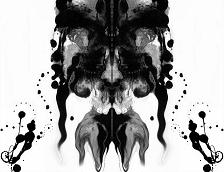
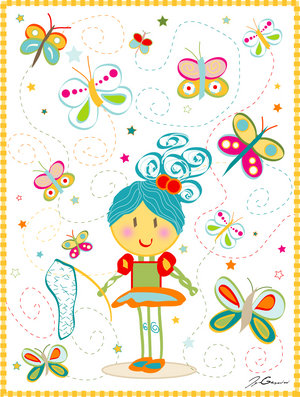
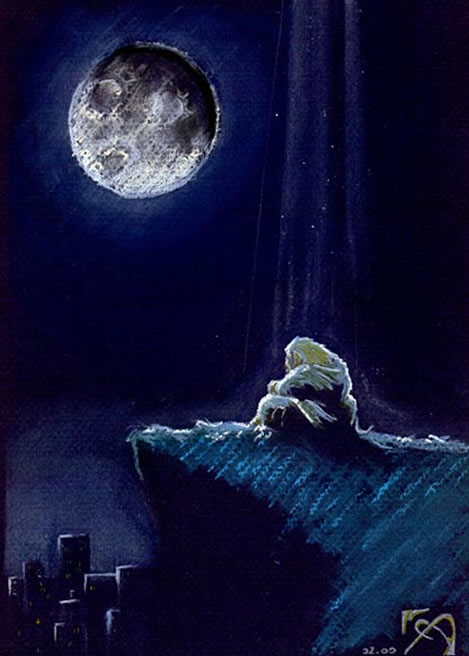 He watched the headlights of a far away car run its fingers along the picket fence that marked his house - yellow fangs ran on his wall and against his face. He clenched his eyes and mouth shut. The warmth of the lights burnt against his skin and he wanted everything to be dark again or sunlight. It passed. He looked around just to make sure and turned the knife over on his lap.
He watched the headlights of a far away car run its fingers along the picket fence that marked his house - yellow fangs ran on his wall and against his face. He clenched his eyes and mouth shut. The warmth of the lights burnt against his skin and he wanted everything to be dark again or sunlight. It passed. He looked around just to make sure and turned the knife over on his lap.
